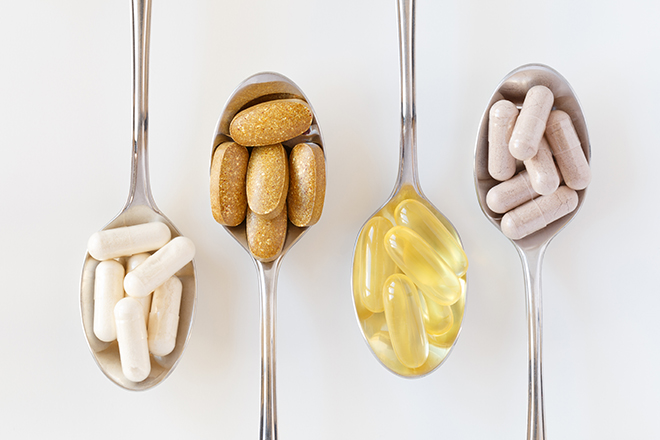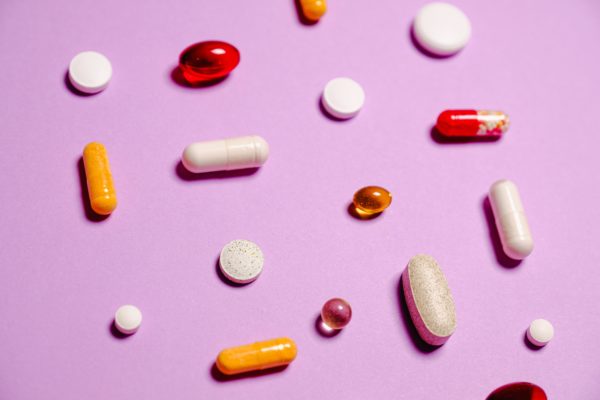Are All Vitamins Created Equally?
Have you ever walked down the supplement aisles looking for a vitamin? Do you ever wonder which brand you should choose? How do you know if one is better than the other? Unfortunately, not all vitamins are high-quality. Some are better than others. Research shows that 20% of dietary supplements contain more than one unapproved component.
Vitamins are critical to ensure our bodies receive enough nutrients to function correctly. Often, food alone does not provide us with sufficient nutrients. Depending on our diet or condition, many of us require extra support. In this article, we’ll cover the importance of understanding what is in your vitamin, how to find a quality product, and why Bump Vitamins are different from the rest.
Do Regulatory Agencies Oversee Vitamins?
Unlike prescription drugs, vitamins and supplements do not undergo testing and regulation by the Food and Drug Administration (FDA). This means that it becomes the manufacturer’s responsibility to ensure the quality and consistency of the product. The lack of regulation raises concerns for a product’s quality, safety, and potency.
What Problems Can Arise From A Lack Of Vitamin Regulations?
Many vitamins and supplements contain different ingredients than what is on the label because of the absence of regulatory requirements. Research has shown supplements may have contaminants, including heavy metals, toxins, pesticides, and prescription drugs such as steroids or stimulants. These contaminants may have negative health impacts, which includes gastrointestinal disorders, developmental impairment, liver damage, and toxicity.
Do Any Organizations Regulate Vitamins?
Yes, several third-party organizations test the safety and purity of vitamins and supplements under Good Manufacturing Practices (GMP) standards, which follow stringent standards to protect public health. These organizations include:
-
- Retests products once per year
- Guarantees consistency with the manufacturing process
-
- Retests products up to six times per year
- Mandatory standard in the pharmaceutical industry (Required for all prescription drugs but optional for dietary supplements)
- CL – Consumer Labs
-
- Independent testing of popular products
- Free database that publishes testing methods and quality standards/criteria
How Do I Know Which Vitamins Are Third Party Tested?
When determining which supplement to take, examining the bottle label can provide crucial information. Specifically, look for a seal of approval indicating that the manufacturer has fulfilled GMP requirements. This can typically be found on the label with acronyms such as “NSF,” “USP,” “GMP,” or “CL.”
If a supplement lacks this seal of approval, it’s possible that the product won’t contain the quality content you’re expecting and may even contain harmful substances. By contrast, that certification seal is an assurance to customers that the ingredients inside the bottle match what is on the label.
In short, vitamins without the seal may have more or less ingredients than what is indicated, making it essential for consumers to choose products carefully. By looking for that seal of approval, you can rest assured that your supplements offer the quality and safety that you seek.
Consider The Quality Of Your Vitamins And Supplements
If you’re looking for the safest and healthiest option for your vitamins and supplements, opt for those with a seal of certification. Along with this, it’s important to pay attention to the quality of the ingredients used.
To find this information, take a look at the nutrition label. Unfortunately, many manufacturers use fillers and chemicals to cut costs, improve color and taste, and extend shelf life.
Some common preservatives added to vitamins and supplements include titanium dioxide, zinc oxide, and food color additives. Popular fillers include microcrystalline cellulose, modified (GMO) corn starch, magnesium stearate, gelatin, and talc (clay).
It’s important to note that some of these preservatives and fillers may be carcinogenic. So, always carefully read the nutrition label and choose products with natural and safe ingredients.
Final Thoughts
Most vitamins do not meet what the label claims. Unlike prescription drugs, dietary supplements do not need to undergo clinical trials to ensure safety and efficacy, which raises concerns for safety and quality. It is important to consume vitamins and supplements with a seal of certification to ensure the product is safe and reliable. Without a seal of certification, supplements may have contaminants that may be harmful to your health.
BUMP Vitamins
It is essential to consume high-quality vitamins to ensure each supplement correlates to what is stated on the label. High-quality vitamins incorporate GMP standards to ensure consistency throughout the manufacturing process. At BUMP, we care about the quality of vitamins we bring to our consumers. All of our BUMP vitamins are high-grade vitamins made at GMP-certified facilities in the United States. Because our vitamins comply with GMP standards, you can trust our products to be free from harmful contaminants.
Unlike most store-bought vitamins, our supplements undergo the same verification process as prescription drugs, ensuring their quality and safety. A licensed pharmacist personally verifies each and every order to ensure safety and high standards. Want to learn more about BUMP vitamins? Click here to learn about our ingredients and GMP certification.




